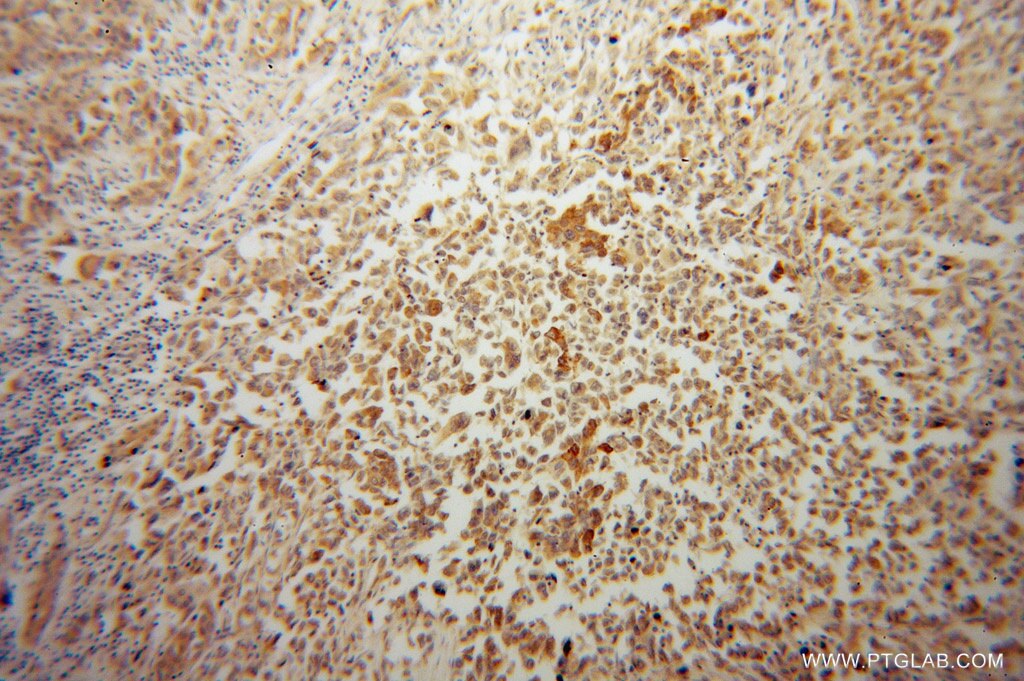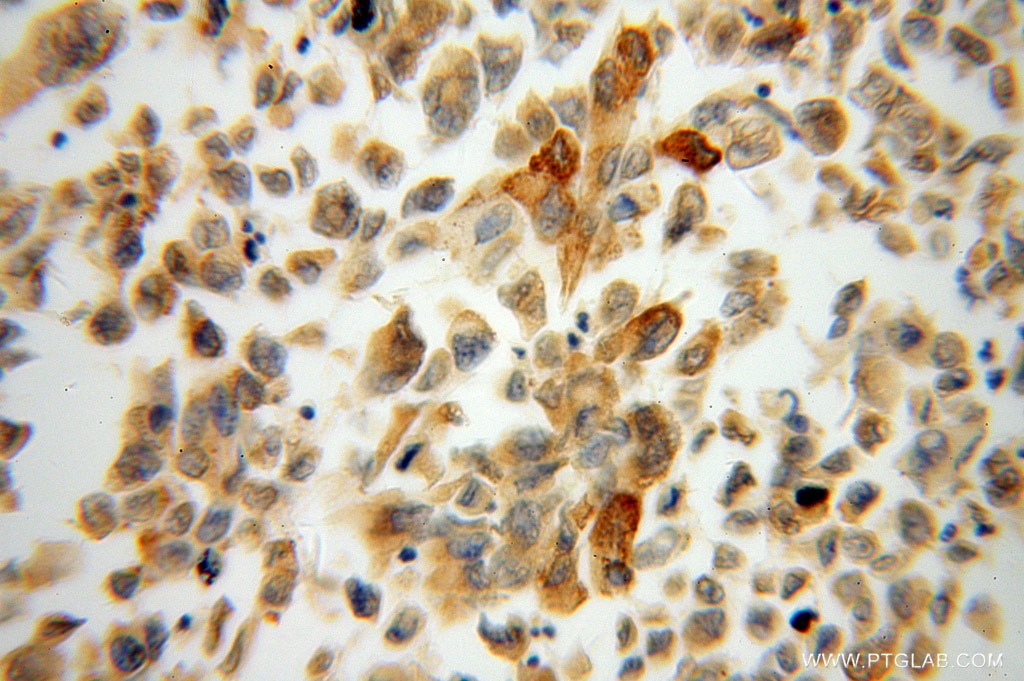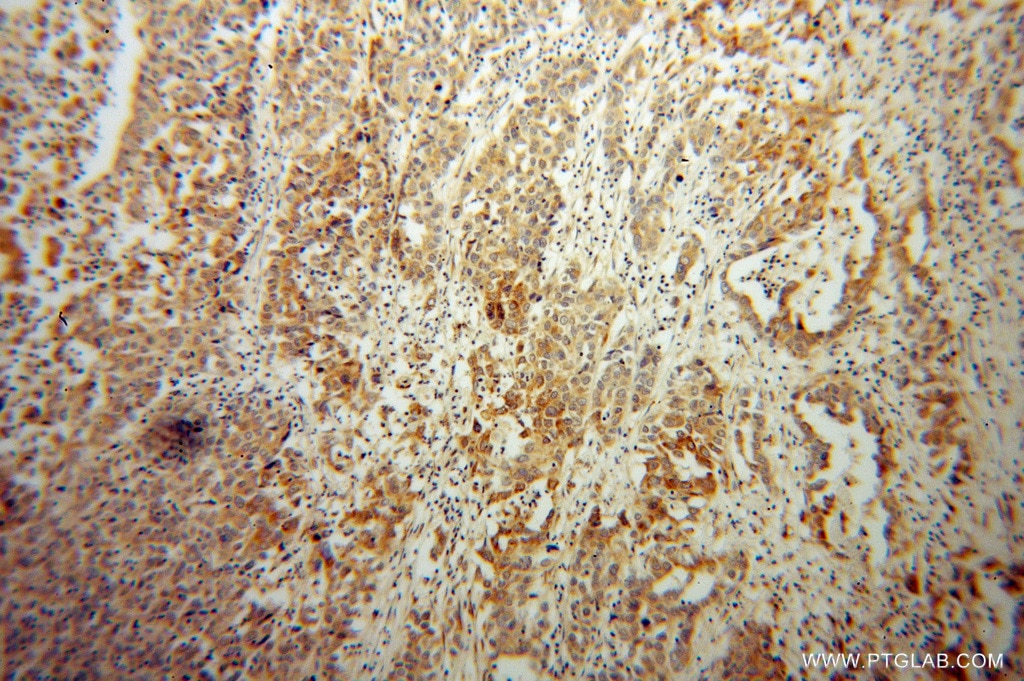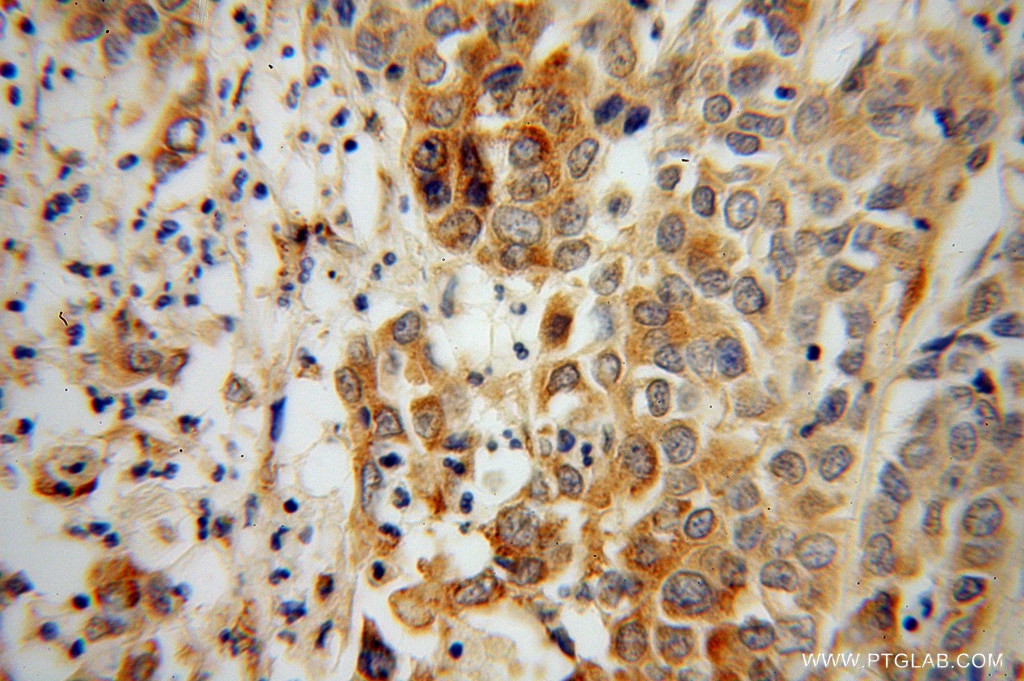Validation Data Gallery
Tested Applications
Recommended dilution
| Application | Dilution |
|---|---|
| It is recommended that this reagent should be titrated in each testing system to obtain optimal results. | |
| Sample-dependent, Check data in validation data gallery. | |
Published Applications
| WB | See 1 publications below |
Product Information
13453-1-AP targets PLOD2 in WB, ELISA applications and shows reactivity with human, mouse, rat samples.
| Tested Reactivity | human, mouse, rat |
| Cited Reactivity | mouse, rat |
| Host / Isotype | Rabbit / IgG |
| Class | Polyclonal |
| Type | Antibody |
| Immunogen | PLOD2 fusion protein Ag4300 相同性解析による交差性が予測される生物種 |
| Full Name | procollagen-lysine, 2-oxoglutarate 5-dioxygenase 2 |
| Calculated molecular weight | 758 aa, 85 kDa |
| GenBank accession number | BC037169 |
| Gene Symbol | PLOD2 |
| Gene ID (NCBI) | 5352 |
| Conjugate | Unconjugated |
| Form | Liquid |
| Purification Method | Antigen affinity purification |
| UNIPROT ID | O00469 |
| Storage Buffer | PBS with 0.02% sodium azide and 50% glycerol , pH 7.3 |
| Storage Conditions | Store at -20°C. Stable for one year after shipment. Aliquoting is unnecessary for -20oC storage. |
Background Information
PLOD2,also named as LH2, forms hydroxylysine residues in -Xaa-Lys-Gly- sequences in collagens. It is a potential novel prognostic factor for HCC patients following surgery. Among the PLOD genes, PLOD2 contributes to cancer prognosis and angiogenesis. Several authors have reported that PLOD2 expression might provide prognostic information about malignant tumours such as glioblastoma. PLOD2 expression is a useful biomarker for the effects of antiangiogenic treatment for malignancy.(PMID:22098155). It has 2 isoforms produced by alternative splicing and seven glycosylation sites.
Publications
| Species | Application | Title |
|---|---|---|
J Mol Cell Cardiol Ascorbate starvation alters endoplasmic reticulum-resident enzymes in cardiac fibroblasts, priming them for increased procollagen secretion. |



